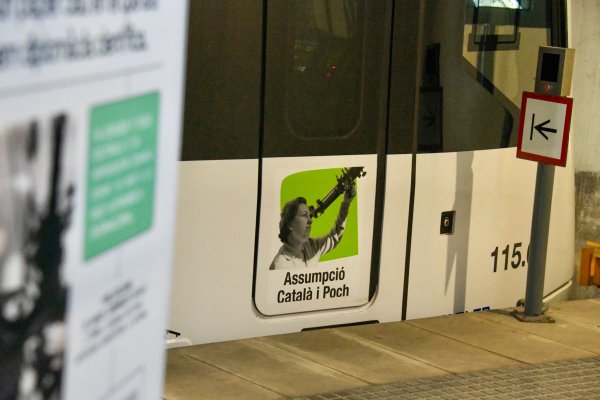This autumn, ten new researchers have arrived the Institute of Cosmos Sciences to continue their academic careers. We are very excited to welcome them to our institution and we hope that they have an enriching experience here, both academically and personally!
The Institute was created in 2006 as the instrument of the University of Barcelona for the active support of research in theoretical astrophysics and particle physics, paying special attention to their synergy with cosmology. Since then, it has become a consolidated research institution with more than 50 long term scientists, 15 engineers and 65 postdoctoral researchers and PhD students. With every new addition, we grow as a community and we position ourselves in the international research landscape. Now, we would like to introduce you to these researchers. If you want to get to know them a little bit better, keep on reading!
ALEXANDRE SERANTES
Dr. Serantes got a PhD at the University of Santiago de Compostela and then worked as a postdoctoral fellow at the International Centre for Theoretical Sciences and at the National Centre for Nuclear Research, where he worked in topics such as holography, relativistic hydrodynamics and numerical relativity. He has now joined the ICC to continue to pursue this research line. Besides theoretical physics, he also enjoys reading, walks and going to the cinema.
AYAKA USUI
Dr. Usui obtained her PhD at the Okinawa Institute of Science and Technology Graduate University in Japan. This is her very first postdoctoral stay and she plans to continue her work on cold atoms as well as explore the fields of quantum simulation and quantum thermodynamics. In her spare time, she enjoys jogging and going sightseeing in the city of Barcelona.
CHERVIN LAPORTE
Dr. Laporte obtained his PhD at the Max Planck Institute for Astrophysics. His expertise covers a wide range of fields such as galactic dynamics, computational cosmology, galaxy formation and interpretation and data mining of large astronomical datasets. Dr. Laporte was awarded an ERC Starting Grant by the European Research Council (ERC) in its 2019 call for his project “Numerical Simulations of the Milky Way’s Accretion History (VIA LACTEA)” which will allow him to work on the formation and evolution of the Milky Way. Outside astrophysics, he enjoys playing jazz music on the piano and scuba diving.
JUAN PEDRAZA
Dr. Pedraza obtained his PhD at the University of Texas at Austin (USA) and then went on to work as a postdoc researcher at the University of Amsterdam, then the University College London and finally at Brandeis University. This 2021 he has joined the ICCUB as a La Caixa Junior Fellow to keep on working on the interplay between gravity and quantum information theory. He aims to tackle questions pertaining to the emergence and dynamics of space-time, entanglement entropy and quantum chaos. Outside of physics, he enjoys chess-playing, vintage Jazz and Lindy-Hop dancing.
MARIA MONGUIÓ
Dr. Monguió started her academic path at the University of Barcelona, where she obtained her Physics degree, master and PhD. She has been working as a postdoc at the Universities of Alicante and Hertfordshire before returning to Spain. Her expertise focuses on the kinematics and dynamics of the spiral arms as seen through BA stars. She is also a survey working group member of WEAVE. During next few years she plans to use WEAVE data, combined with Gaia, to study the structure and dynamics of the Galactic disc.
NILS SCHÖNEBERG
Dr. Schöneberg obtained both his MSc and PhD at the RWTH in Aachen, Germany. He has been mostly focused on different aspects of cosmology, from improving the numerical side of many codes, investigating the future constraining power of spectral distortions all the way to analysing various dark matter models and their impact on cosmology. In his spare time, he enjoys hiking, baking and writing short stories or programming games. He also has an interest on outreach initiatives since he used to run a YouTube channel educating people on STEM fields!
ROBIE HENNIGAR
Dr. Hennigar completed his MSc and PhD degrees at the University of Waterloo, Canada. After completing his PhD, he was awarded Canada’s prestigious Banting Postdoctoral Fellowship, for which he was hosted at Memorial University of Newfoundland. Hennigar’s research concerns gravitational theory and focuses on black holes in particular. His most significant contributions have been to our understanding of the thermodynamics of black holes, and the theoretical implications of modified theories of gravity. He is also interested in the interplay of quantum physics and gravitation through the lens of holographic duality and quantum information. Outside of physics, he enjoys reading, hiking and cycling.
RUXANDRA BONDARESCU
Dr. Bondarescu began her journey at Cornell University where she got her PhD and MSc. Prior to coming to Barcelona, she has worked at the Centre for Gravitational Waves Physics at Penn State University, and then she was a fellow at the Institute of Theoretical Physics at the University of Zurich. Her current work focuses on learning more about the evolution of the universe from gravitational waves. In her own words – “It's fabulous to finally be able to measure these spacetime waves and to use them to learn about the matter that curves spacetime”. In addition to being a scientist, she is also a mother of three children. In her spare time, she writes books with them.
SERGIO ARGUEDAS
Dr. Arguedas obtained his PhD at CERN in Switzerland. During this period, he worked primarily on the search for dark matter. He was part of the CERN Axion Solar Telescope (CAST) collaboration as a member of the RADES group where they used a resonant cavity inside of a magnetic field to search for a dark matter candidate called the axion. He plans to continue on this line of research here at the ICC and broaden his sources by using data from Dark Matter searches at the LHCb. During his free time, he enjoys dancing and bike riding.
SHOHEI OKAWA
Dr. Okawa obtained his MSC and PhD at the Nagoya University, Japan. He then proceeded to work at the Technical University of Munich and the University of Victoria, Canada, where he focused on low energy phenomena induced from dark sectors that only feebly interact with the SM. He extensively studied how electric dipole moments are generated from CP violation in dark sectors. At the ICC, he will keep working on dark sector physics while also evaluating radiative corrections to axion couplings to the SM fermions and gauge bosons at low energy, which play a crucial role in experimental searches for axions or axion-like particles. In his free time, he loves watching and playing football as well as tasting local beers.
Now you know a little bit more about our newest members! We would like for all of you to join us in giving these new researchers our warmest welcome to our community.



